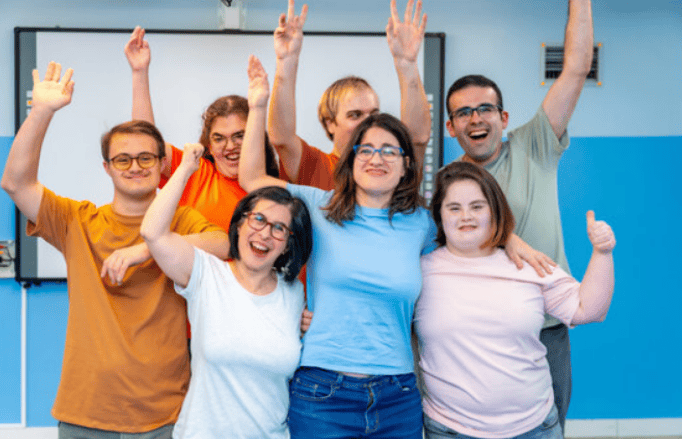Finding the right day program for adults with developmental disabilities is a decision that can greatly influence a person’s daily happiness, long-term growth, and sense of community. These programs go beyond daily care — they support independence, teach life skills, and create opportunities for meaningful social interaction.
For families, the selection process often comes with a mix of emotions: hope, concern, and the desire to make the best possible choice. It’s not just about logistics — it’s about quality, safety, and aligning the program with your loved one’s unique needs and goals.
What Is a Day Program?
A day program provides structured activities and support for adults with developmental disabilities outside of their home, typically during weekday hours. These programs are designed to promote learning, social engagement, and community integration.
Day programs often fall into a few categories:
- Facility-Based Programs: Services are provided within a dedicated center or hub.
- Community-Focused Programs: Individuals participate in activities within the local community, such as volunteering or recreational events.
- Blended Programs: These combine in-center structure with community outings, offering flexibility.
Eligibility is usually determined by a formal diagnosis and adult age status. Many programs are funded through Medicaid waiver programs, or state-specific agencies such as the Office for People with Developmental Disabilities (OPWDD) in New York. Some families also use private funding or supplemental grants.

Factors to Consider When Choosing a Program
The right program should do more than fill time—it should enhance quality of life. Consider these core elements when comparing options:
1. Location and Accessibility
Is the center easy to reach? Does it offer transportation? Consider whether the travel time is manageable for your family member and whether staff support transitions effectively.
2. Staffing and Supervision
Ask about the staff-to-participant ratio. More staff usually means more personalized attention. Also, ask about staff credentials and training in areas like behavioral support and medication administration.
3. Program Content and Daily Activities
What will participants be doing each day? Look for programs that offer skill-building sessions, hobby-based classes, recreational activities, and structured goals for personal development.
4. Support Services
Some adults may need medical supervision or behavior management. Ensure the program can accommodate these needs and that staff are equipped to handle them appropriately.
How to Visit and Evaluate a Program
A site visit is essential to get a genuine feel for the program. Here’s how to make the most of it:
Ask In-Depth Questions
- How are activities adapted to meet individual needs?
- What’s the emergency protocol?
- How often are progress reviews conducted?
- How are family members involved?
Observe the Environment
Pay attention to how staff interact with participants. Are they respectful and engaging? Does the space feel clean, safe, and welcoming? Are individuals participating actively or left idle?
Review Credentials
Request information about the program’s licensing status, staff training protocols, and any reviews or inspections by oversight agencies. Inquire about any partnerships with OPWDD or other regulatory bodies.
Matching the Program to the Individual’s Needs
A truly effective program will align with the individual’s interests, communication style, and long-term goals.
Person-Centered Planning
Ensure the program prioritizes the individual’s voice in shaping daily activities and future plans. A one-size-fits-all model won’t work.
Cultural and Language Considerations
Does the staff speak your loved one’s primary language? Are cultural traditions respected and included in programming?
Digital Support and Reliable Connectivity
In today’s connected world, it’s important to know whether a program offers digital tools for staying in touch, especially for families managing care remotely. Ask if they provide video call options, real-time updates, or access to digital records. Reliable global connectivity ensures communication isn’t disrupted by location changes or weak signals, helping loved ones stay supported and connected—no matter where you are.
Involve Your Loved One in the Process
Whenever possible, bring the person who will attend the program on site visits. Their comfort and opinion matter. Watch how they respond to the space and people.
What Families Say: Honest Insights from Caregivers
Families often gain clarity only after their loved one starts attending a program. Here’s what some have shared:
“We were nervous at first, but the staff included our son in every step of the process. He’s developed friendships and confidence we hadn’t seen before.” — Maria, parent
“My sister has grown so much. She’s learning to cook, take the bus, and even helps organize group events. The program really listens to her.” — Ryan, sibling
These stories show how the right environment can open doors to new possibilities and deeper personal development.
Conclusion
Choosing a day program for adults with developmental disabilities is a journey that requires thoughtful consideration. It’s not just about care—it’s about building a life filled with growth, relationships, and purpose.
Take your time, visit multiple programs, talk to professionals, and most importantly, include your loved one in the decision. When families and individuals work together, they can find a program that becomes not just a routine, but a life-changing opportunity.


